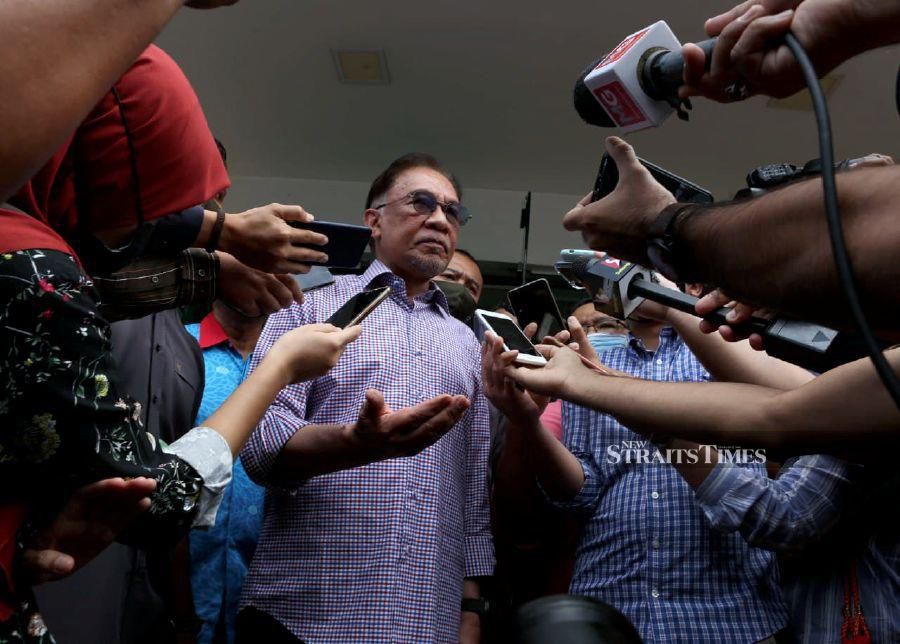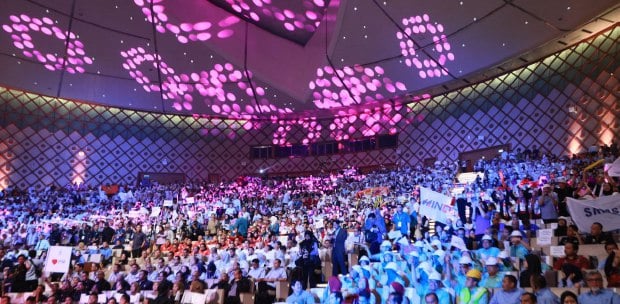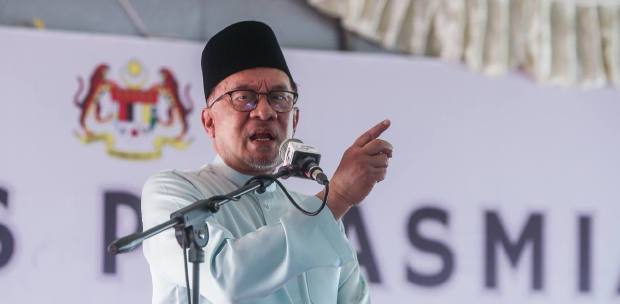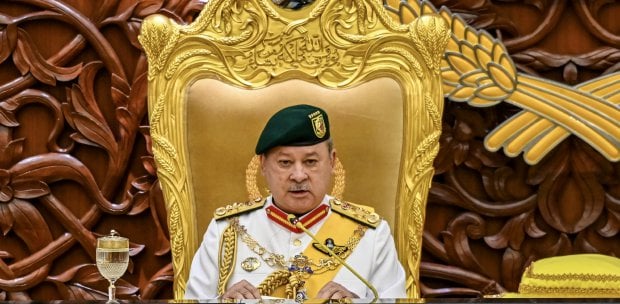NOT surprisingly, the question that has been asked around these last few days is whether any person who dared challenge the King's proclamation of emergency has committed "derhaka" (treason) against King and country.
Former academician and currently an Opposition leader in Perak, Dr Abdul Aziz Bari, thinks it is not. On Jan 13, a Bersatu politician, Dr Muhammad Faiz Na'aman, was quoted as saying that any attempt to question or challenge the King's Emergency Proclamation can be regarded as "khianat serta derhaka" ("Persenda proklamasi darurat adalah khianat dan derhaka", Harakah Daily, Jan 13, 2021)
This newspaper reported on Jan 17 that Parliamentary Opposition leader, Datuk Seri Anwar Ibrahim, intended to challenge the proclamation of emergency, alleging that it was "a desperate attempt by the government to stay in power."
Arguing that the Perikatan Nasional government's decision to get the King to declare an emergency "has no solid basis", Anwar said that his action in challenging the proclamation is "to defend the Constitution and the rakyat from an abuse of power."
He added that instead of declaring an emergency, the government should have offered "a consistent and detailed plan for the people and its fight against Covid-19." For him, the Movement Control Order (MCO) has become "an annual exercise in futility, robbed of the meaning."
What was once called "conditional" has now become "permanent", and the "the recovery" has become meaningless. Anwar concluded: "So, we are back to the point where we started… Muhyiddin and his government have brought Malaysia to the brink of insanity."
Yes, these are indeed harsh words and serious allegations. I know that some Malaysians do not agree with him, but apparently many do. The division in public opinion has gone deep and lately more pronounced.
Expressing a contrary view, Federal Territories Minister Tan Sri Annuar Musa maintains the proclamation of emergency is necessary "to ensure the safety and well-being of the people."
Warning that the worst is yet to come, he said that the infection rate will reach 5,000 cases in April, and by May and June, it could go up to 8,000 cases. Inserting itself into this politically charged arena between Anwar and Annuar (on opposite sides) comes a hitherto little-known NGO, Gerakan Pembela Ummah (Ummah), a coalition of 500 Muslim groups.
Ummah chairman, Mohd Zai Mustaffa, told the media on Jan 19 that he will intervene to block Anwar's lawsuit if the latter decides to proceed with his court challenge.
Mohd Zai also accused Anwar of being power crazy and willing to gamble with the fate of the people and national security. ("Muslim group says will countersue if Anwar goes ahead with legal challenge against Emergency declaration", Malay Mail, Jan 19, 2021).
Political analyst, Azmi Hassan, believes Anwar had made a wrong move. His action has created the perception that the Opposition leader prioritises politics over the people's welfare.
Azmi said that in the US, when Joe Biden criticised Donald Trump over his poor handling of the pandemic, the former had offered alternative solutions. That is what the Malaysian people want – alternative solutions from Anwar.
Consequently he asked "Is the Opposition leader also clueless about how to manage the pandemic?"
A careful study of Clause (1) of Article 150 of the Federal Constitution shows that if the Yang di-Pertuan Agong is satisfied that a grave emergency exists whereby the security, or the economic life, or public order in the country is threatened, he may issue a Proclamation of Emergency.
The pandemic is clearly threatening the economic life of the country. Clause (2) then states that the Proclamation may be issued before the actual occurrence of the threatening event if the Yang di-Pertuan Agong is satisfied that there is imminent danger of the occurrence of such event.
Clause (8) then stated that the satisfaction of the Yang di-Pertuan Agong "shall be final and conclusive and shall not be challenged or called into question in any court" and no court shall have jurisdiction to entertain or determine any application, question or proceeding, in whatever form.
When practising lawyer Mohamed Haniff Khatri Abdulla told Bernama last week that our courts do not have the jurisdiction to entertain any challenge against the emergency proclamation by the King, he had stated the correct legal position, which I fully concur with.
But, let us see how our courts deal with Anwar's challenge.
The writer, a former federal counsel at the Attorney-General's Chambers, is deputy chairman of the Kuala Lumpur Foundation to Criminalise War






